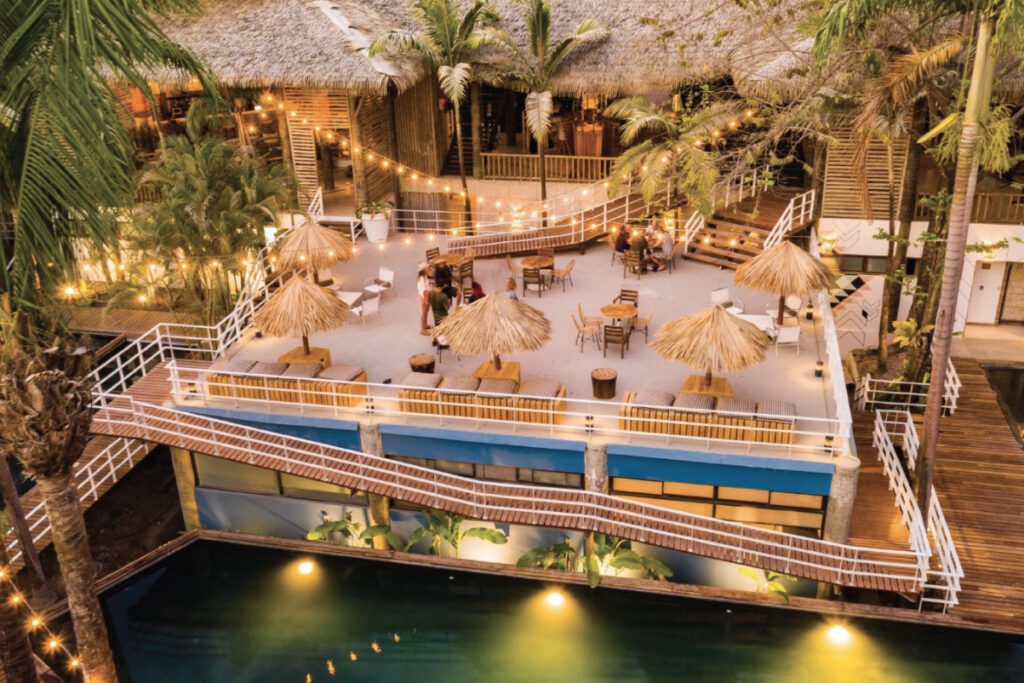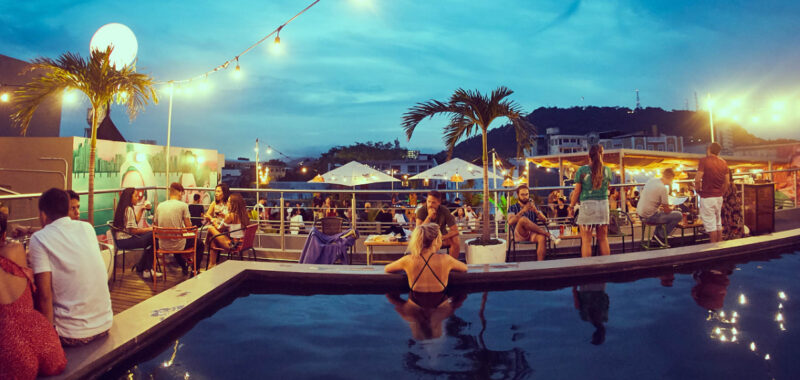Skift Take
A fire sale gives a new lease on life to Selina, a brand that reinvented hostels for the TikTok generation but struggled after a debt binge.
Collective Hospitality, a Singapore-based firm, has acquired most of the business assets of Selina, a hostel brand focused on young travelers.
The deal, announced Wednesday in Singapore, gives Selina another chance at life. Last month, Selina declared insolvency and was delisted from the Nasdaq stock market.
âOur 4- to 5-year gameplan with Selina is to go in and turn things around, drive more incremental revenue and profitability into the business, and create value in it,â said Gary Murray, CEO of parent company Destination Group, in an exclusive interview with Skift. âUltimately, down the road, we can monetize that value.â
The parties didn’t disclose a price for the deal. The transaction, already completed, includes about 100 hotels, all essentially on long-term lease and managed by Selina.
Remote Year, a travel company that lets employees work in a different city every month, is also included in the deal. Selina had acquired it in 2020.
Collective Hospitality runs about 15 properties aimed at Gen Z travelers under brands such as Bodega Hostels, Slumber Party, and Socialtel Resorts in Thailand and the rest of Southeast Asia. Selina’s properties are in complementary regions â in 22 countries across Latin America and Europe.
Collective Hospitality is part of Destination Group, founded 28 years ago by Murray. The group’s main business has been buying hotels in Southeast Asia via distressed sales and then renovating, rebranding, and repositioning the properties for asset sales. The group also runs a restaurant and bar business called Destination Eats.
Key Details
- Destination Group used “internal capital” to acquire Selina’s assets. It could do so thanks to a high cash flow on the group’s assets that are “worth north of $500 million,” according to Murray.
- The Selina brand and its loyalty program will survive. In the next six months, the group will review the Selina properties and consider which ones it might want to rebrand to Socialtel.
- Murray considers Remote Year “a fabulous business” and said he plans to grow it.

A Plan to Turn Selina Around
At Selina, Murray sees an opportunity to curate hyper-local experiences to drive more revenue from existing assets.
Murray emphasized the importance of guest experience in its strategy: “After Covid, we’re not in the hotel or the room selling business, we’re in the entertainment business, meaning we need to create great guest experiences at all of our properties.”
One idea is for the hostel chain to package “adventures.” Think surf camps, PADI diving certifications, or foreign language workshops. Collective Hospitality could partner with locals to add daily lessons culminating in certification to vacation packages that include accommodation, meals, ground transfers, and plane tickets sourced via wholesalers.
“Our objective is to get occupancy up from the mid-’50s [average percentage] to the mid-’70s across the group,” Murray said.
Another of Murray’s ideas is to use Selina’s hotel kitchens more efficiently by running them in off-hours as “ghost kitchens” for local venues.
Since the pandemic, Destination Group has begun rolling out ghost kitchens across all of its hotels. It now has about 10 virtual brands with specialties like pizza and burgers.
“It’s become a nice cash flow stream at our resorts,” Murray said.
Selina’s Collapse
Selina’s entry into the public markets in October 2022 via a special purpose acquisition company (SPAC) faced early signs of trouble after 96% of investors in the blank check company demanded their money back rather than taking shares in Selina.
The stock, which briefly touched $49, eventually traded below a dollar.
Selina’s collapse has offered a stark lesson in the perils of rapid expansion fueled by debt. Despite amassing about 29,000 “bedspaces” globally, the company burned through cash at an alarming rate.
A last-ditch $50 million investment paid in tranches over the past year failed to stem the bleeding.
The final straw? Selina couldn’t scrape together an interest payment for about $500,000 to the Inter-American Development Bank.
For investors, Selina serves as a sobering reminder that trendy concepts don’t always translate to resilient businesses. A relative rise in hybrid working and digital nomads may be enduring trends, but Selina stumbled as it tried to scale quickly.
“Capturing Gen Z is one of the last bastions in the hotel industry that the big brand groups haven’t been able to get,” Murray said. “Selina has been one of the only brands in the industry aimed at travelers ages 20 to 25 that has really been able to nail the guest experience and earn guest loyalty.”
“Capture a customer in their twenties during their first travel experiences, and the exciting part is that you’ve got them for life,” Murray said.
Newmark Group’s Lodging Capital Markets team advised Collective on the acquisition. Joint administrators from FTI Consulting managed the sales process.
Accommodations Sector Stock Index Performance Year-to-Date
What am I looking at? The performance of hotels and short-term rental sector stocks within the ST200. The index includes companies publicly traded across global markets, including international and regional hotel brands, hotel REITs, hotel management companies, alternative accommodations, and timeshares.
The Skift Travel 200 (ST200)Â combines the financial performance of nearly 200 travel companies worth more than a trillion dollars into a single number. See more hotels and short-term rental financial sector performance.
Read the full methodology behind the Skift Travel 200.

